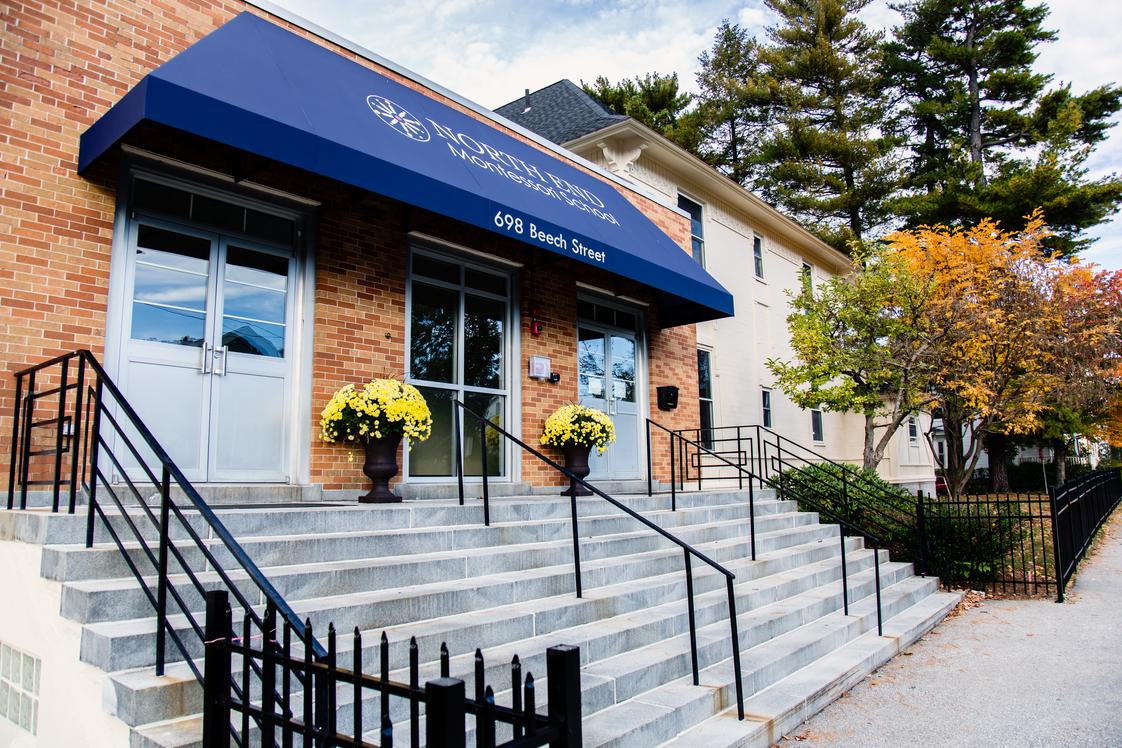The Montessori method of early childhood education is renowned for its child-centered approach that promotes independence, creativity and a passion for learning. This comprehensive guide focuses on Montessori daycares, Montessori kindergartens, Montessori preschools, and Montessori elementary schools, and outlines the positive impact of each stage on a child’s overall development.

Montessori Daycare: Nurturing independence from the beginning
Montessori daycare programs are designed to nurture independence and self-confidence in the youngest learners. The programs provide a safe and stimulating space in which children as young as old as toddlers can learn and explore at their own pace. In the Montessori daycare, the classroom is equipped with age-appropriate, hands-on activities that stimulate sensory exploration and motor skill development.
Teachers in Montessori daycares are facilitators instead of traditional teachers, guiding children as they navigate their learning journey. This method encourages curiosity for children and allows them to feel autonomous. Activities such as pouring beans, pouring water, and buttoning clothes are common in Montessori daycare. All of them are designed to improve fine motor skills as well as practical life abilities.
Montessori Kindergarten: Foundations for Lifelong Learning
As the children advance to Montessori kindergarten the focus shifts. They remain encouraged to be free and engaged in activities that are self-directed. The Montessori Kindergarten curriculum is rich in variety which includes math, language as well as cultural studies and life skills.
A mixed-age school is one of the most essential elements of Montessori Kindergarten. Children from all ages learn together. This setting allows younger children to learn from their older classmates while older children improve their knowledge through giving them the concepts they’ve already grasped. The peer learning aspect promotes social skills as well the feeling of belonging in the classroom.
Montessori kindergarten is a highly interactive environment that focuses on real-world learning. Math, for example is taught using manipulatives like beads and rods, which help children grasp abstract concepts by physical interaction. Language development may be aided through storytelling, phonetic exercises and writing.
Montessori Preschool: Fostering curiosity and exploration
Montessori preschools build on the foundations laid out in daycare and kindergarten. They emphasize curiosity, exploration and a desire to learn. Preschools are designed to make learning engaging in educational and fun. It has curriculum and activities that are geared to the ages of 3- to 6-year young children.
In a Montessori-based preschool children are able to choose their activities at their own speed and select from a number of possibilities. This autonomy encourages children to develop a sense for responsibility and inspires them to be more self-motivated. The preschool curriculum is based on practical daily activities, sensory exercises including math, language and cultural studies.
Montessori education is built on the practical skills of life such as gardening, cleaning and cooking. These types of activities are designed to teach children life skills, as well as improve their coordination, concentration, independence, and other important skills. Sensorial activities, on the contrary are designed to improve the five senses and enhance the development of cognitive abilities.
Montessori Elementary School: Get Ready for Academic Success and Beyond
Montessori elementary schools follow the philosophy of child-centered education and a greater focus on academics while providing a holistic approach to education for children. The curriculum is integrated and interconnected, allowing children to see the relationships between different subjects of study.
Elementary students at a Montessori school engage in extensive research, cooperative learning, and hands-on experiments. The classroom is designed to encourage the development of critical thinking using materials that can be used by all interests and abilities.
One of the main features of Montessori education is its focus on “cosmic education” which helps children recognize their role in the world, and the interconnectedness between all things. This approach encourages students to accept responsibility for the environment as well as for their fellow citizens, enabling them to become conscious world citizens.
The Montessori approach to early education is distinctive in the way it supports the child’s development from daycare to elementary school. Montessori education provides children with capabilities they require to succeed throughout their lives. It accomplishes this by stimulating independence, curiosity, enthusiasm for learning, and a sense of wonder.